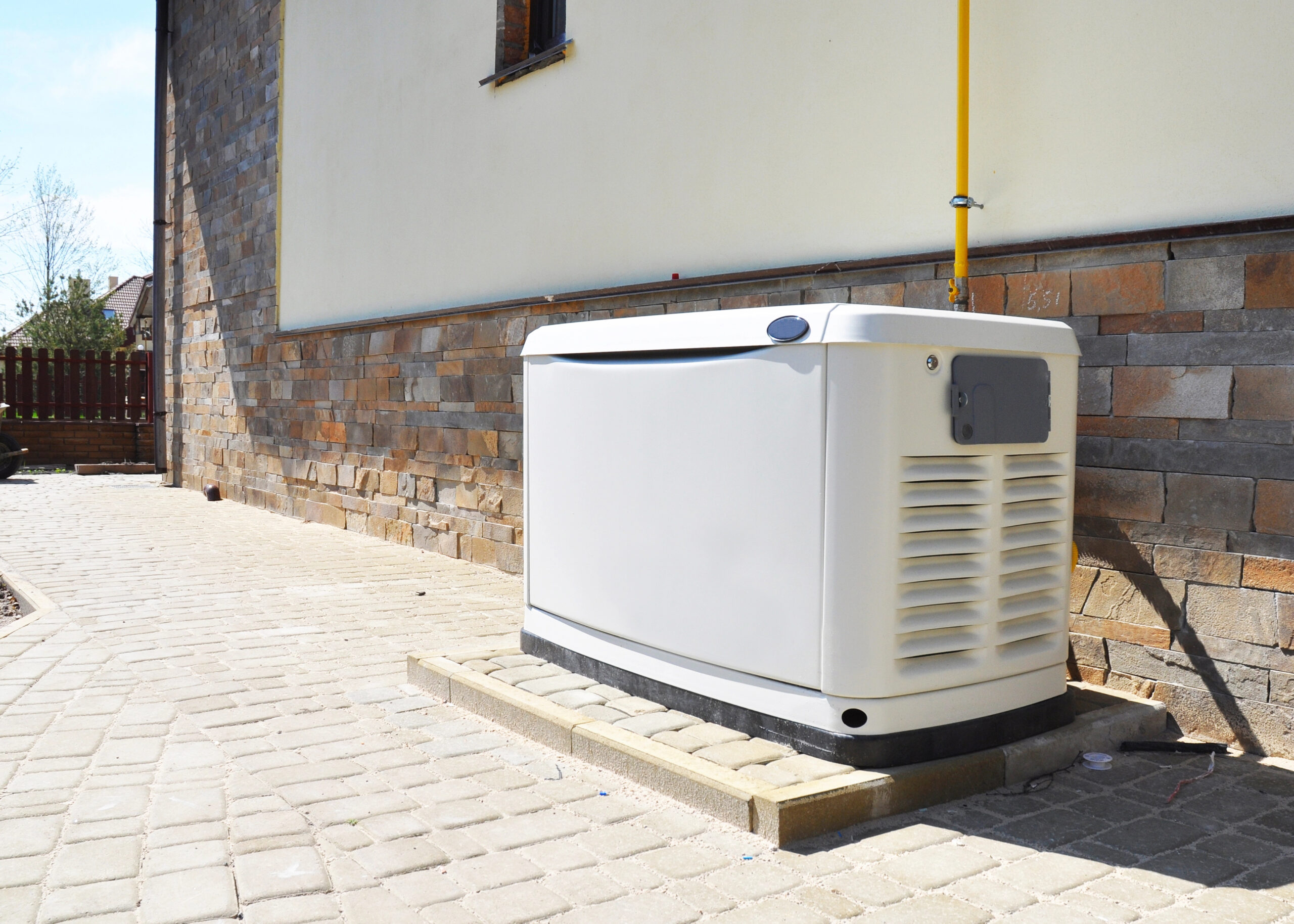Power outages can strike unexpectedly—whether due to severe weather, infrastructure issues, or other emergencies. For homeowners and small business owners, losing power can disrupt daily life, halt essential operations, or even lead to significant financial losses. That’s where installing generators come in.
A generator acts as a reliable backup, ensuring your lights stay on, your appliances keep running, and your business operations don’t skip a beat. This guide will walk you through everything you need to know about installing generators, including types, key considerations, and essential maintenance tips. If you need immediate assistance or want a professional to install your generator, call us at (336) 924-5166!
Types of Generators
Before installing a generator, it’s important to understand the various types available. Each type is suited for a specific set of needs and offers its own advantages and drawbacks.
1. Portable Generators
Portable generators are compact, easy to move, and ideal for short-term or emergency use. They are commonly used to power essential devices like refrigerators, lights, and small appliances.
Pros:
- Affordable and widely available.
- Easy to transport and use during outdoor activities, such as camping.
- Great for temporary situations.
Cons:
- Limited power output, not suitable for running an entire home.
- Requires manual setup in the case of an outage.
- Uses gas or propane, which requires safe storage and handling.
2. Standby Generators
Standby generators are permanently installed systems that automatically activate during a power outage. They are built to supply power to an entire home or business.
Pros:
- Delivers seamless, automatic power restoration.
- High power capacity, enough to run large appliances and HVAC systems.
- Often operates on natural gas or propane, eliminating the need for frequent refueling.
Cons:
- Significantly higher upfront and installation costs.
- Requires regular professional maintenance.
3. Inverter Generators
Inverter generators are designed to produce stable, clean energy—making them ideal for sensitive electronics like laptops or medical equipment.
Pros:
- Quiet operation compared to other types.
- Highly fuel-efficient.
- Compact and lightweight.
Cons:
- More expensive than traditional portable generators.
- Lower power output compared to standby systems.
Factors to Consider Before Installing a Generator
Choosing and installing the right generator requires careful planning. Here are the most important factors to keep in mind:
Power Requirements
First, calculate your power needs. Create a list of essential devices and appliances you’ll need during a power outage and determine their wattage requirements. Most generators list their power capacity in watts, so knowing your total wattage will help you select the right size.
For example:
- A refrigerator typically requires 600-800 watts.
- An air conditioner can use around 2,000 watts.
Remember to also account for startup wattage, as some devices use more power when starting up than they do when running continuously.
Fuel Type
Generators can run on gas, diesel, propane, or natural gas. Each fuel type comes with pros and cons:
- Gasoline generators are easy to find and refill but may not be suitable for long-term use as gas has a shorter shelf life.
- Diesel generators are durable and fuel-efficient but tend to be noisier and more costly upfront.
- Propane generators burn cleanly and have a long fuel shelf life but require a separate propane tank.
- Natural gas generators offer a continuous fuel supply if you have a natural gas line, but installation can be more expensive.
Noise Level and Environmental Considerations
Noise levels can vary significantly between generator types. Standby generators are generally quieter than portable ones, but it’s important to choose a model that meets local noise ordinances. Noise-reducing technologies, like soundproof enclosures, may also be worth exploring.
From an environmental standpoint, some fuel types—like propane—burn more cleanly and emit fewer pollutants, making them a better choice for eco-conscious homeowners and businesses.
Maintenance Tips for Generators
Regular maintenance is key to keeping your generator running smoothly and extending its lifespan. Here’s how to ensure your backup power source stays in tip-top shape.
Perform Routine Inspections
Check your generator regularly for signs of wear, leaks, or loose connections. Look out for corroded components and ensure that the fuel and oil levels are adequate.
Run the Generator Periodically
Even if you’re not experiencing power outages, it’s important to run your generator for about 20–30 minutes every month. This helps keep components lubricated and ensures your generator is ready for use when you need it.
Replace Filters and Fluids
- Change the engine oil after every 50–100 hours of use.
- Replace air filters regularly to prevent dust and debris from clogging the system.
- Check the fuel filter and replace it if it shows signs of wear.
Professional Maintenance
While regular maintenance can often be performed by homeowners or small business owners, it’s essential to schedule annual professional servicing. Technicians will conduct a thorough inspection, make adjustments, and address any potential issues before they become costly repairs.
Ensure Peace of Mind with a Generator You Can Rely On
Power outages don’t have to disrupt your life or your business. Installing the right generator ensures uninterrupted power, protects perishable goods, and keeps your operations running seamlessly during emergencies.
Investing in a generator may seem like a big decision, but the benefits far outweigh the costs—especially when you see how easy it is to prepare for the unexpected. For personalized advice and professional installation, don’t hesitate to consult with experts who can help you choose the best solution for your home or business.
Call us today at (336) 924-5166 to ensure you’re never left in the dark again. Our experienced team is here to help. We are excited to share that the community has even honored our excellence! North Carolina Electrical Contractor of the Year was presented to Sam Ogburn, owner of Ogburn Electric Company, by the NC Association of Electrical Contractors.

